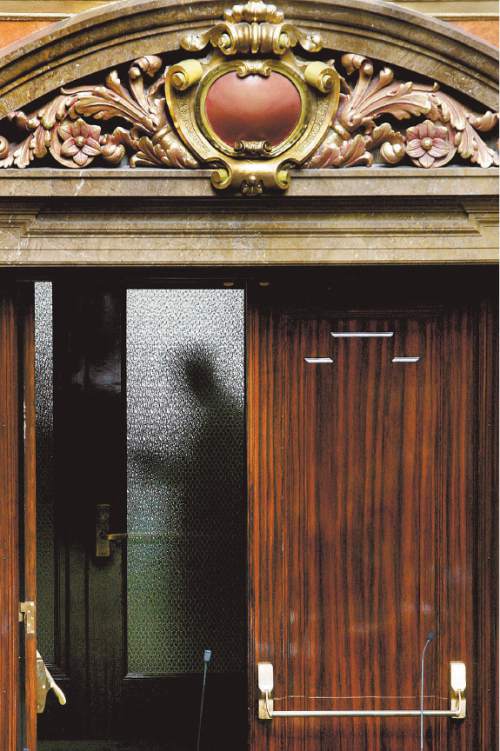This is an archived article that was published on sltrib.com in 2015, and information in the article may be outdated. It is provided only for personal research purposes and may not be reprinted.
A proposal to invite all 87 of Utah's Republican state lawmakers into a closed-door debate on health care policy is raising concerns.
State senators appeared Monday to be balking at the idea of a joint behind-the-scenes discussion with their House counterparts about Gov. Gary Herbert's Healthy Utah Medicaid expansion plan before voting on a hallmark issue of the 2015 legislative session.
Newly installed House Speaker Greg Hughes said last week the proposed caucus would be a "roll-your-sleeves-up, speak bluntly meeting" to thoroughly vet Herbert's proposals on health care funding for tens of thousands of low-income Utahns.
The Draper Republican said a private discussion was merited, given the plan's potentially wide-ranging effects for years to come. "We can't do this in a fish tank," Hughes said, highlighting concerns that public scrutiny might hamper an honest and open debate.
Utah Democratic Party Chairman Peter Corroon said the minority party had "a huge problem" with a closed joint Republican caucus. Corroon said he understood worries about debating sensitive matters in the open, "but at the end of the day, they've signed up for a public position and if they don't want to tell the public what they're saying in private, that's a concern."
An open-government advocate said the closed meeting raised "real concerns at the lack of transparency, especially over something so crucial."
"The public is left out of that conversation," said Maryann Martindale, executive director of Alliance for a Better Utah. "There are no notes. There's no way to know exactly what's discussed, by whom, or how, or costs involved. ... I suspect they don't want us to know what they have to say."
Media attorneys and a spokesman for the Utah Senate said the state's Open and Public Meetings Act allowed for the joint meeting, which could involve 84 percent of the 104-member Utah Legislature. The act carves out an exemption for political caucuses, they noted, allowing closed meetings among lawmakers of a specific party.
House Republicans are planning to have two meetings to discuss Healthy Utah and Medicaid expansion, the second one likely to be closed to the public, Hughes said. Senate Republicans, who always close their caucuses, are planning to discuss the issue Tuesday and probably Thursday.
Senate President Wayne Niederhauser said he is leaving it up to his caucus whether to meet jointly later with the House.
The open-meetings-law exemption on caucuses is generally interpreted to cover matters of political strategy, not debates of substantial public policy, Salt Lake City media attorney Jeff Hunt said.
"It would be even more troubling if you had the House and Senate Republicans [together]," Hunt said, "because then you really are talking about a quorum of the entire Legislature."
Another media attorney agreed the caucus loophole probably covered a joint House-Senate meeting, but noted that Utah's open-meetings law explicitly calls for state government, its agencies and other political bodies to "conduct their deliberations openly."
"If they use it to circumvent having any deliberation," said Salt Lake City media lawyer Randy Dryer, "then it would violate the intent of the Open Meetings Act."
Senate advisers believe a joint GOP caucus would be legal, Senate Chief of Staff Ric Cantrell said, but "we're not sure it's the right idea." Some senators question whether hashing out a major policy decision in one long discussion would yield the best result, Cantrell said.
"There is a reason there is a bicameral process," he said, referring to the constitutional requirement for the House and Senate to separately sift and debate proposed legislation.
Hughes said Monday he still believes the joint caucus is a good idea, but that it's unlikely to happen until at least next week — if it happens at all.
"I'm surprised we're not more anxious to get together," Hughes said. "I like the concept, and we'll see what happens."
A spokesman for the Republican governor said he was not taking a position on a joint caucus.
"Whether it happens or not is up to the Legislature," Herbert communications director Marty Carpenter said Monday in an email, "and we won't weigh in on it."
Twitter: @Tony_Semerad
Twitter: @RobertGehrke



